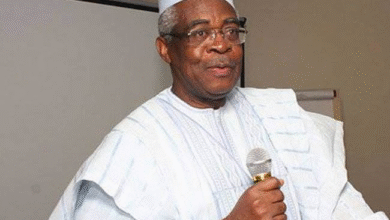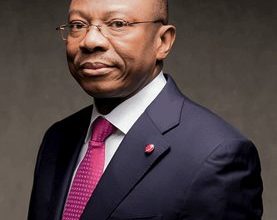Unity Bank’s Change of Guards: The Somefun Years, A Masterclass in How to Run a Bank Without Equity Capital
To understand the Tomi Somefun years at the helm of Unity Bank Plc is to know how a bank with sustained and significant negative shareholder funds can continue to survive without fuss, fanfare, and, more importantly, Regulatory sanction. Somefun’s management of the fragile bank came with unusual grit, guts, and guile. It also involved quiet boardroom diplomacy, prudent financial arrangements, and quick-witted balance sheet management. What is now known as Unity Bank Plc is a complex combination of nine former banks with a variety of foundational stakeholder interests, squaring off against individual expectations and preferences and unique operating situations. How Tomi Somefun navigated the shallow operational landmines and protected corporate sustainability was a masterclass in investor relations and financial adaptability.
Perhaps with the benefit of hindsight and the calmness of sober introspection, even Somefun herself may be puzzled but pleased at the gamesmanship and operational shrewdness she used in running a Nigerian deposit money bank (DMB) with negative equity capital. Indeed, a private equity fund manager from the United Arab Emirates (UAE), in a private discussion with a Proshare analyst, enquired: ‘How the heck did they pull this off for so long without being caught in the grips of angry depositors and anxious regulators?’
Nigeria Real Estate Market Trends
That is a difficult question to answer and perhaps will be addressed someday by the bank’s outgoing chief executive officer (CEO) herself. However, from a market intelligence position, the bank appears to have skilfully taken advantage of five significant leverages:
- The systematic importance of Unity Bank Plc in the northern market space. This has offered the bank Northern goodwill, strong operating cash flow (even in remote locations), and privileged access to institutional deposits from Northern economic activities.
- Large inflows of institutional funds channelled towards agricultural lending (such as the Central Bank of Nigeria’s (CBN’s) Anchor Borrowers Programme).
- The personality and social capital of Tomi Somefun within and outside the Banking industry
- Regulatory forbearance: The Central Bank of Nigeria (CBN) restrained from liquidating and taking over the bank despite its sustained negative shareholders’ funds as the bank was, essentially, prudently managed.
- Carefully structured liquidity and cash flow management across some Northern cash centres and big-ticket transactions. Severe liquidity constraint has seldom been a problem for the bank, but selling off its toxic loan portfolio at a point (in 2017) created challenges in generating significant operating and net interest income.
Somefun took these various advantages to create organisational resilience but still had to navigate the operational minefields of stakeholder politics, inadequate equity capital, large but fragile liquidity, and brittle but stable public confidence. Given these challenges, the fact that she is one of the very few Nigerian banks’ managing directors to serve an entire ten-year term despite the weakness of her balance sheet is a remarkable feat and credit to her integrity, diligence, and market savvy. It serves as testimony to her banking experience, human relationship skills, and competent technical support staff.
Unity Bank’s outgoing CEO’s quiet and self-effacing disposition is the outcome of decades of confronting and overcoming personal hurdles and painful professional pebbles that shaped and sharpened her managerial capacity, human relations, and work ethos.
According to a Unity Bank board member who requested anonymity, ‘Tomi conducted herself with admirable integrity. She is a credit to the institution and banking.’. The next phase of the Unity Bank story without Tomi Somefun will be an entirely new journey. The bank’s share capital will need buffing, its strategic focus will require a more extensive capital base, and its political capital will need to be leveraged more tactically. The bank presently has a negative shareholders fund of slightly over N312bn. Its recent recapitalisation and merger efforts could take care of this, but more equity may be needed to establish competitive dominance in core markets.
Proshare analysts, in a 2019 report on the wobbly realities of what they saw as Nigeria’s ‘tier 3’ banks or banks without adequate shareholder funds, such as the liquidated Heritage Bank and CBN-administered Polaris Bank (before their balance sheet readjustments), said these banks were all on life support, with their clearing house positions underwritten by a technical arrangement between tier 1 banks (especially First Bank of Nigeria) and the banking sector regulator.
In the eight years between 2016 and 2023, Somefun has been able to combat operational and domestic economic headwinds. Nevertheless, compound annual gross earnings growth (CAGR) fell by -91.17%, profit before tax dropped by -528.2%, loans and advances shrank by 89.99%, and customer deposits slipped by -80.34%. Somefun has run Unity Bank with great integrity, by the estimation of her peers, but, unfortunately, this has not translated into high-flying operating performances. Apparently, banking success requires more than personal discipline and brilliance.
Passing the Baton
Unity Bank Plc has evolved through different leadership philosophies, attempting to resolve complex structural and operational issues. Starting from Ado Yakubu Wanka in 2012 to Henry James Semenitari in 2014, the baton was finally passed to Oluwatomi Somefun in August 2015, leading to a regulatory 10-year tenure completion by August 2025. Her tenure can be summarised as a journey in seeking sustainable solutions to a fragile money lender’s prevailing structural challenges leveraging government support and technological integration, passing the baton of leadership in a deserved retirement lease mixed feelings, as the bank appears to be at the cusp of a new phase that could totally redefine the institution, and set the foundation for true competitive sustainability, symbolising Somefun’s pet organisational purpose that kept her awake many nights. Nevertheless, with the recapitalisation efforts she had initiated with her executive management team and with a merger with Providus Bank, the new emerging entity should see brighter days ahead (see Illustration 1 below).
Illustration 1:
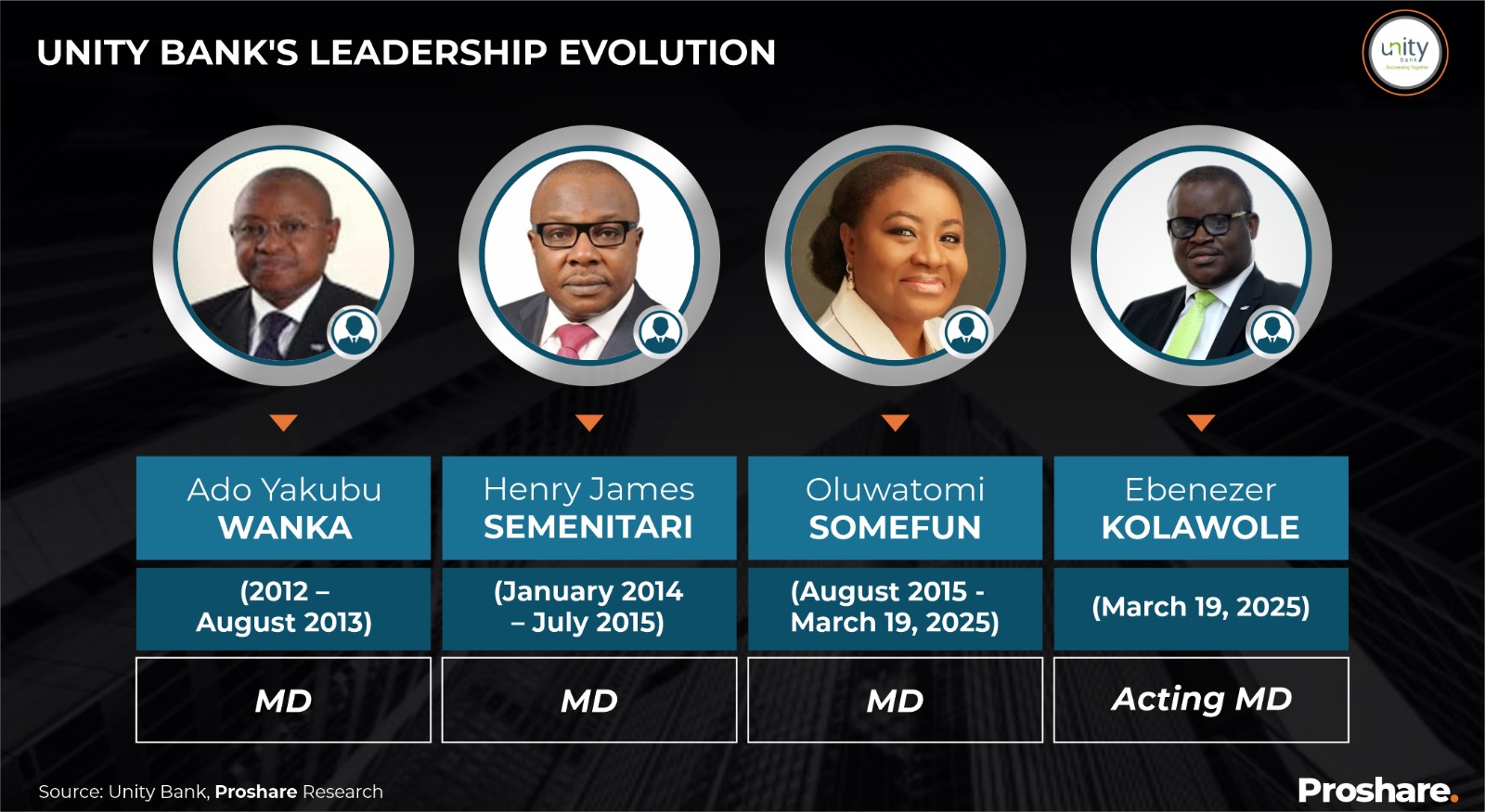
Somefun took over the bank in 2015, making audacious board-approved decisions by disposing of the bank’s large delinquent loan book to the Asset Management Corporation of Nigeria (AMCON) in 2017. The disposal of toxic loan assets came with consequences, as the bank’s loan portfolio shrunk to N8.96bn, shareholders’ equity and profitability turned negative, and the lenders operating fortunes `took a notable hit. These represented the pains of institutional correction. The bank became highly restrained in loan creation, dragging interest income and gross earnings down between 2018 and 2020 before a reversal occurred within a high-interest rate environment in 2022, leading to a mild profit and loss (P&L) recovery. Somefun faced some difficulties running a bank with a heavily negative equity base from 2017 to 2023, resulting in a bail-out plan (debenture) to reduce the size of the balance sheet gap, as she tackled higher liquidity risks and a Nigeria Exchange Limited (NGX) trading suspension due to delayed publication of financial statements (see Chart 1 below).
Chart 1:
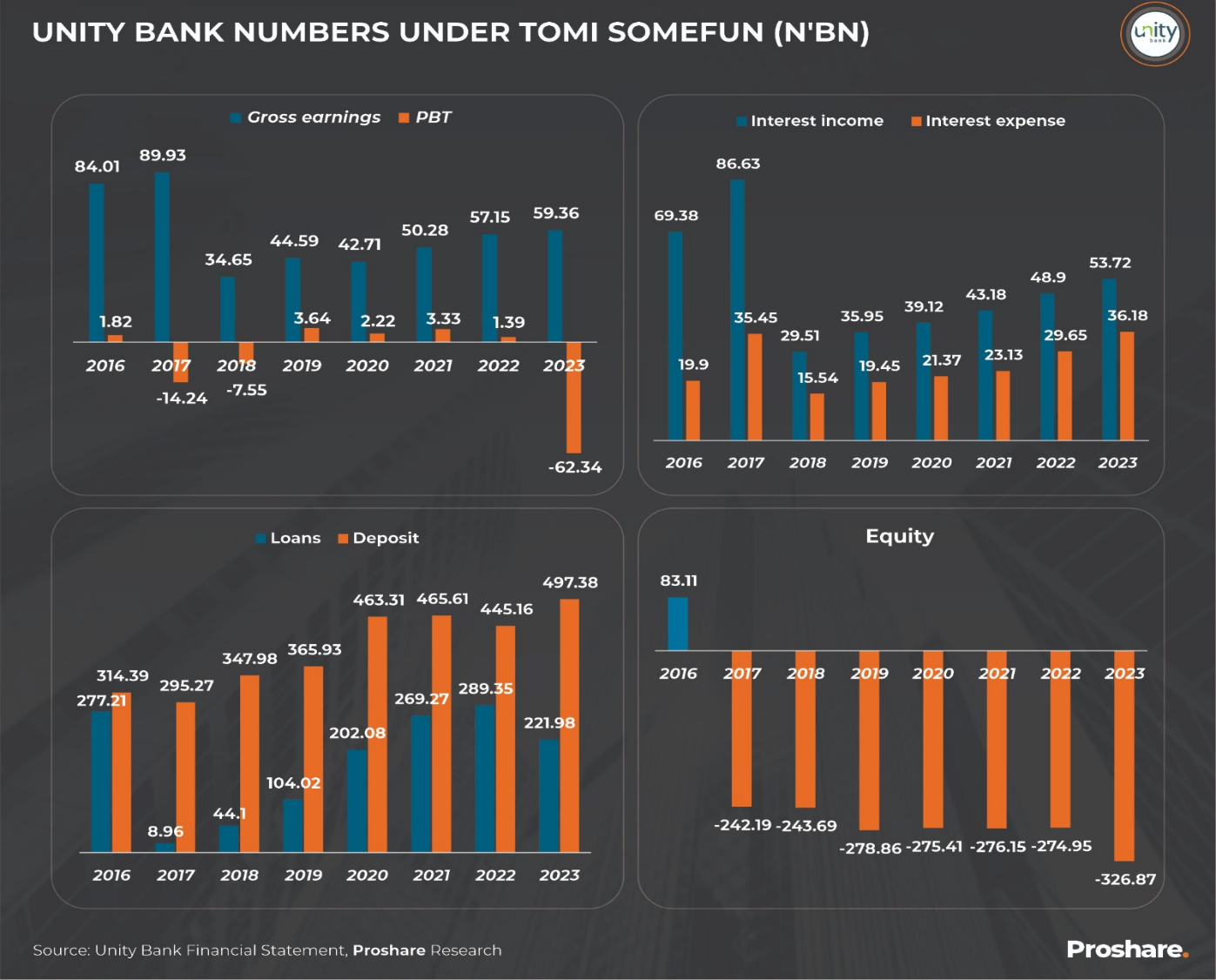
Valuing a Bank’s Transition
The bank’s fragile financial position weighed on its market value, elbowing its share price into a persistent offer(or sell) position between 2015 and 2022 as investors inevitably went short on its equity. The modest decline in negative shareholder funds and the proposed N700bn financial accommodation by the CBN has reawakened positive investor sentiments, as the bank’s share price rose to N3.50k in 2023 and 2024. However, the rally ended late last year due to the delayed publication of the bank’s financial statement, which resulted in a technical suspension on July 08, 2024 (see Chart 2 below).
Investment Crowdfunding
Chart 2:
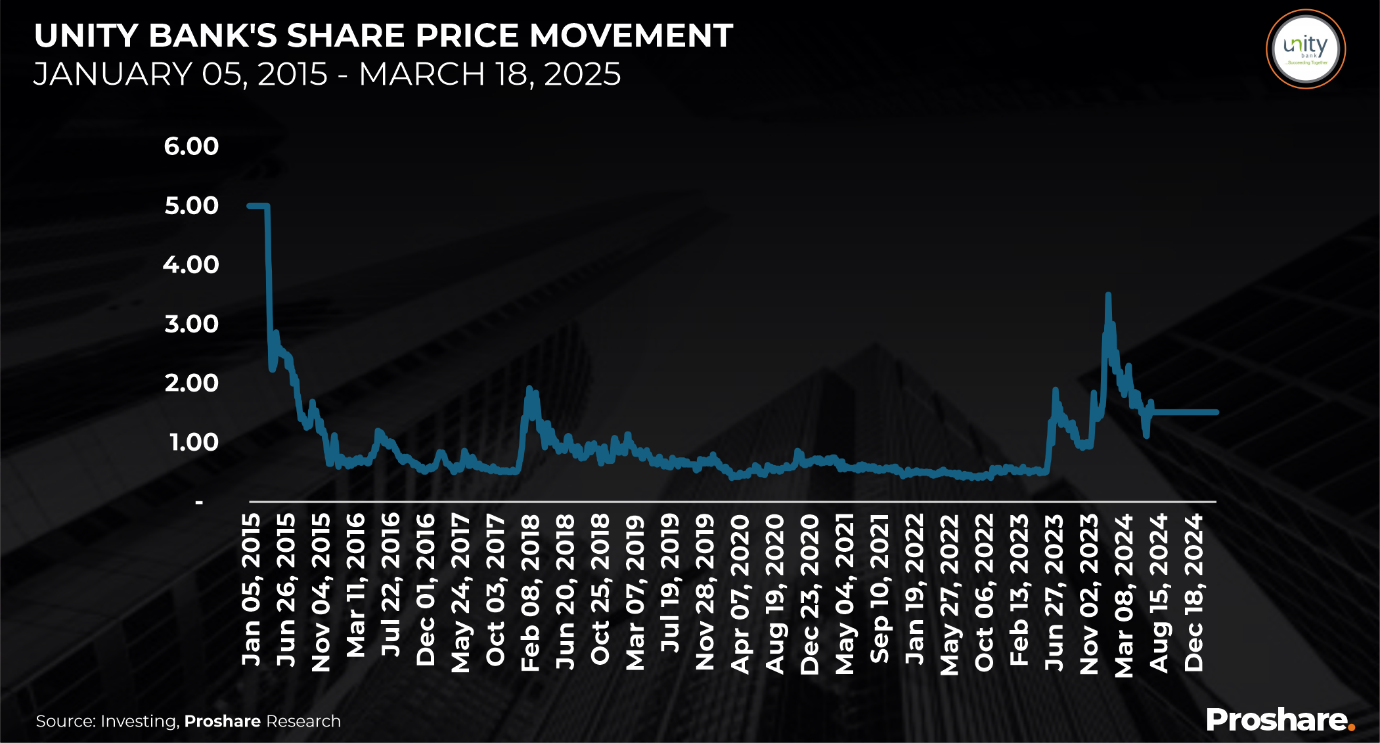
Closing Thoughts:
Unity Bank held its Annual General Meeting today, Wednesday, March 19, 2025, with the announcement of the retirement of one of its longest-serving CEOs, Mrs Tomi Somefun. Furthermore, at the same board meeting, Mr Ebenezer Kolawole, the bank’s immediate past Chief Financial Officer (CFO), was appointed to serve as acting Managing Director. Ebenezer is expected to complete the Tomi-led merger and recapitalisation process with Providus Bank and support the new bank’s fiscal and technical midwifery.
Proshare analysts note that Mergers are complex creatures, and only a few institutions have succeeded in carrying them out smoothly and professionally. Banks like Access Bank Plc have almost made Mergers and inorganic corporate expansion an art form. Unity Bank may need to rip a few tips and tricks from the Access Bank M&A playbook.
Somefun is leaving Unity Bank in a potentially better state than she met it in. Still, a lot will depend on how her successors learn the lessons of running a bank with thin equity and transitioning to a bank with competitively large equity supported by robust shareholder vision, vigour, and value. The new bank should remember its humble beginnings but should not be imprisoned by it. The Somefun years provided exceptional operational hindsight and insight, but the new bank management must resolve to acquire foresight and separate themselves from the

